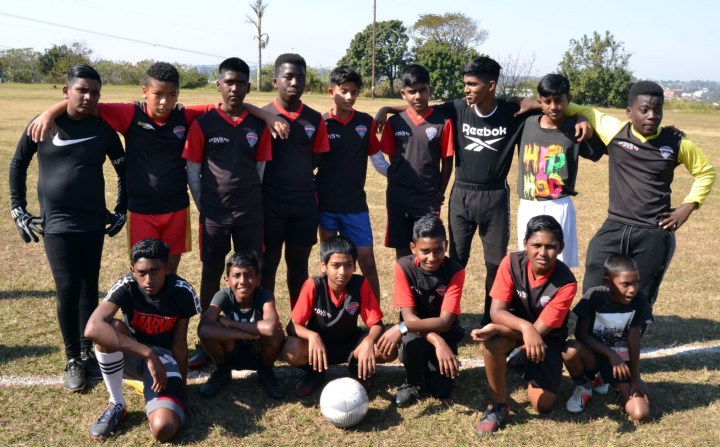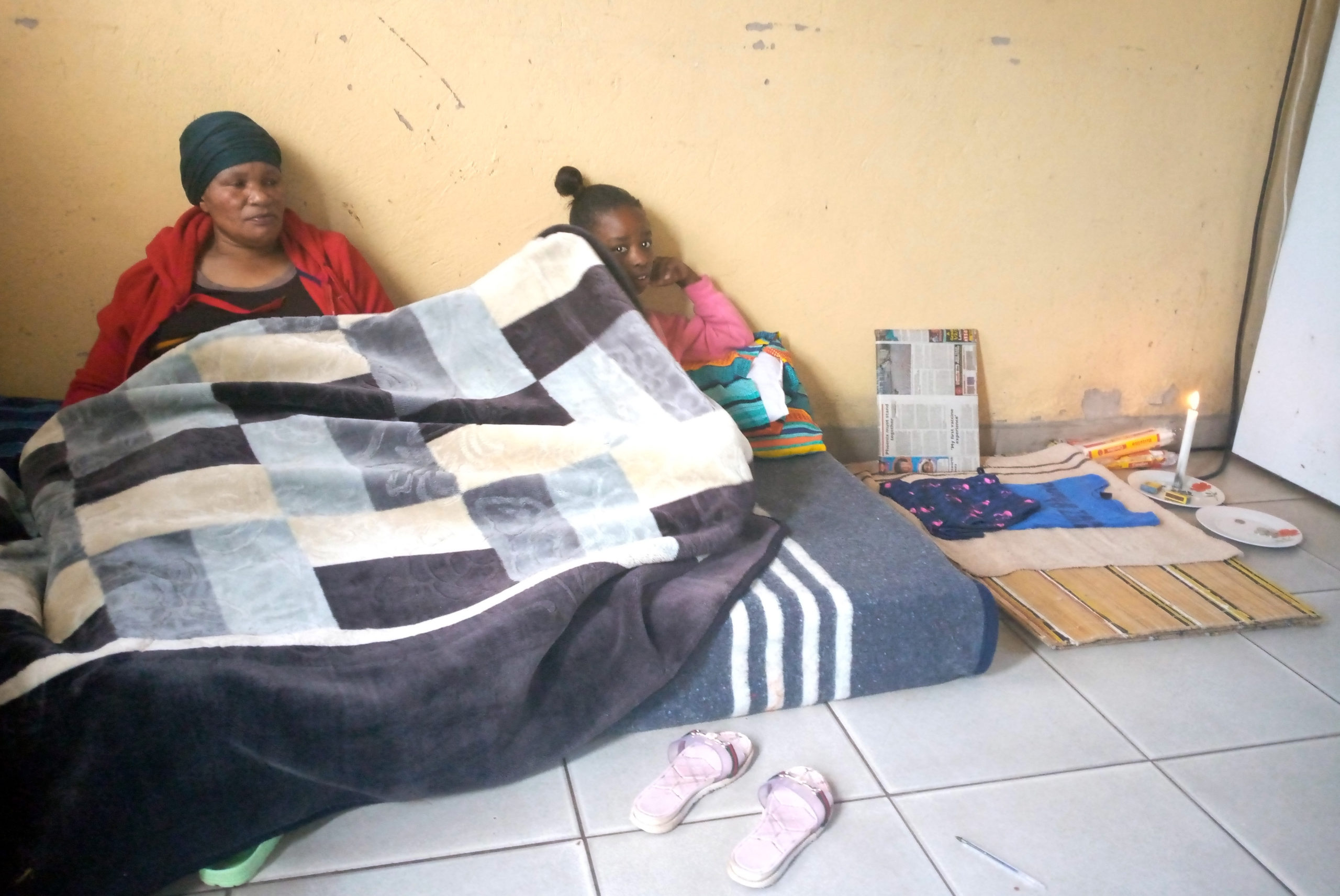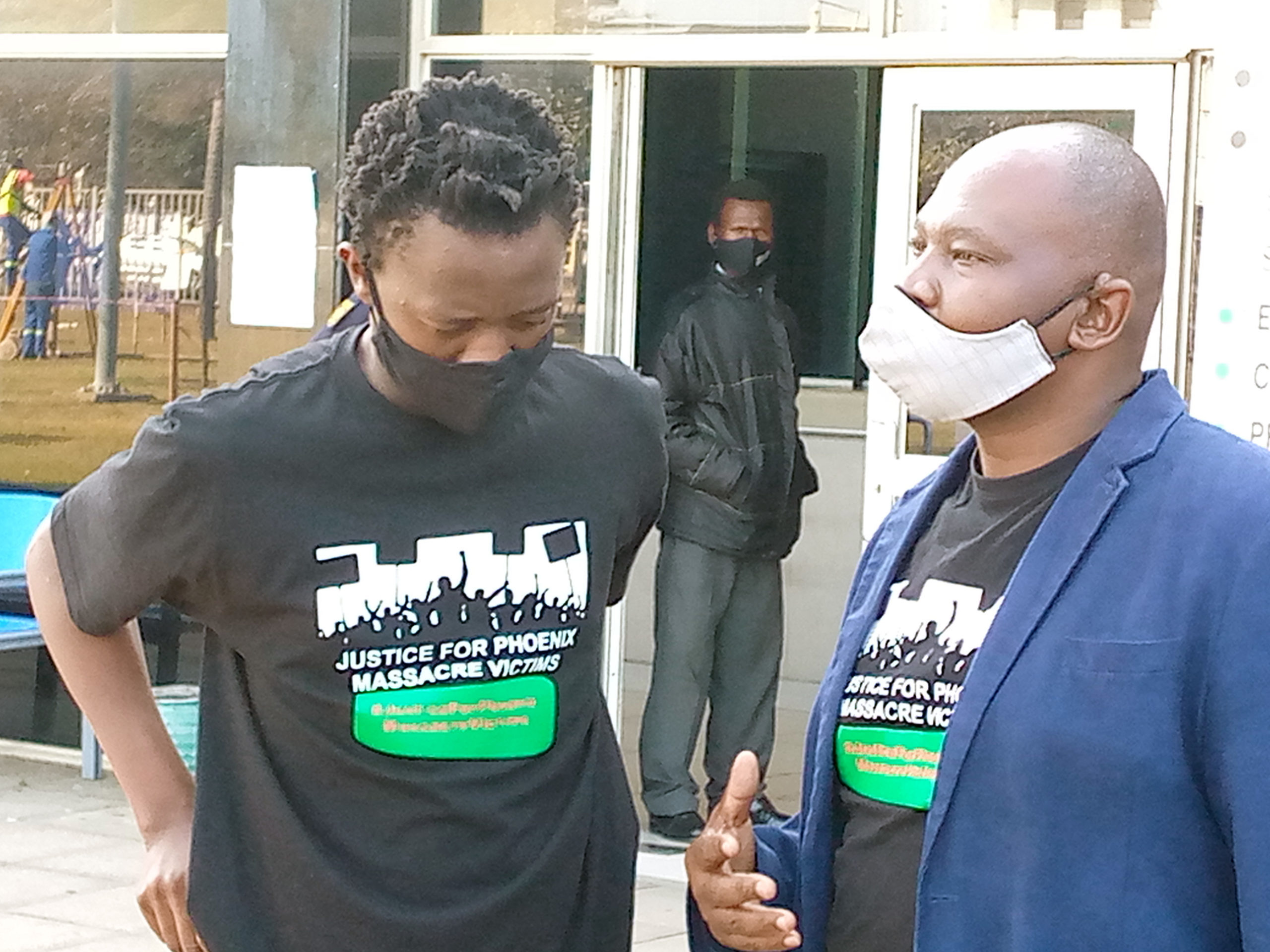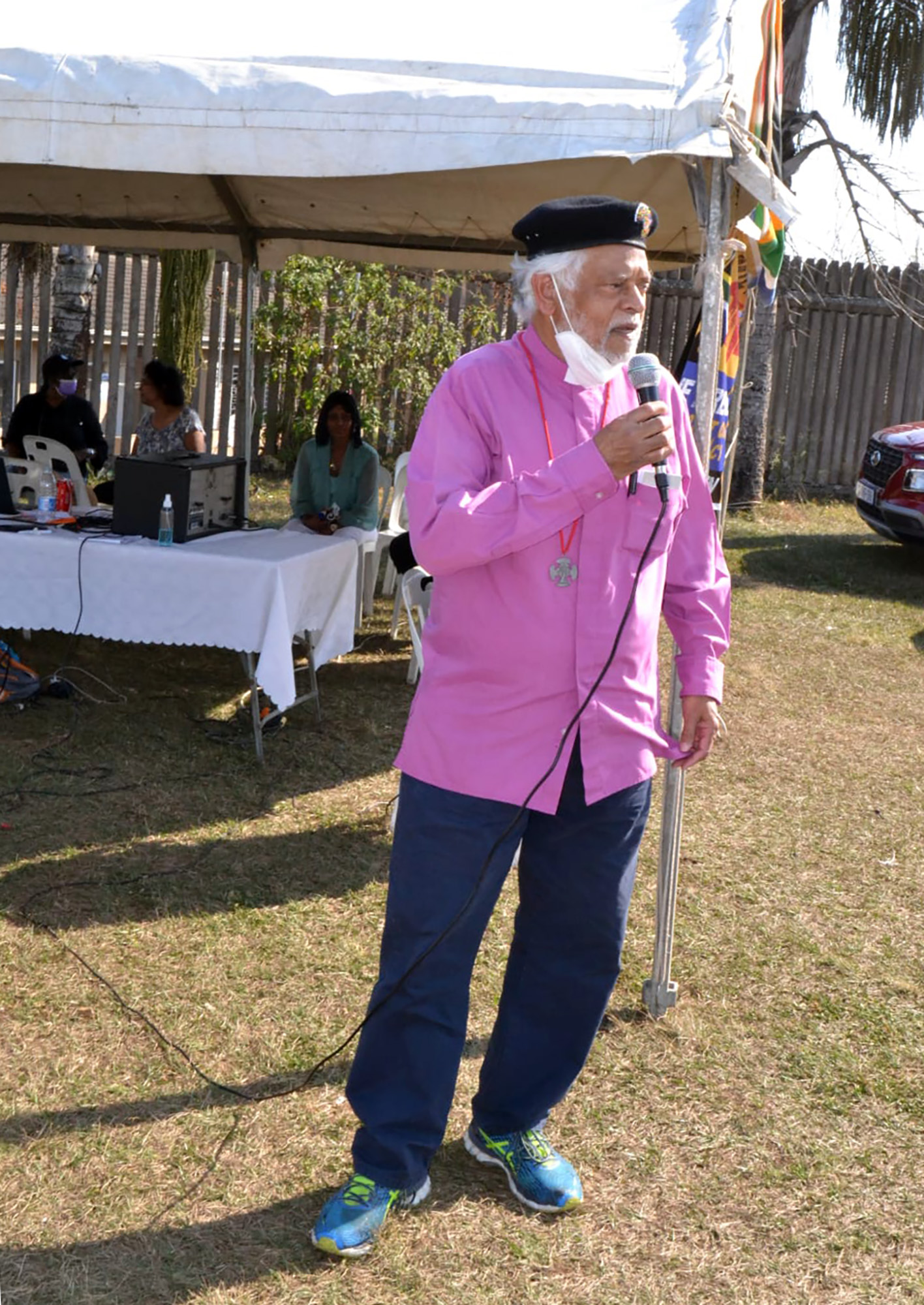DM168 THE AFTERMATH
Committee set up to help communities in KwaZulu-Natal strive for peace after July’s unrest

Leaders from churches, civic organisations, NGOs and political parties have formed a peace and development committee to heal community rifts.
First published in the Daily Maverick 168 weekly newspaper.
Delicate, behind-the-scenes peace efforts by both Indian religious and civic leaders and those from the surrounding black neighbourhoods are under way to prevent the further deterioration of relationships between the two race groups in KwaZulu-Natal (KZN).
Despite these efforts, these leaders have their work cut out because tension and mistrust between the black and Indian communities in KZN runs very deep. The recent riots and mass looting resulted in some communities arming themselves and defending their areas. Some actions, described as heroic, prevented properties and malls from being invaded, looted and burnt.
Police say 36 people were killed in Phoenix during the riots and mayhem. Three victims were Indian people and 33 were black people. It is not clear how many were killed by the vigilantes. Social media circulated fake news about Indian communities under siege, followed by vigilantes attacking and shooting black victims – even innocent, unarmed and non-looting people – and burning their bodies and vehicles.
In response, leaders from churches, civic organisations, NGOs and political parties met and formed a 15-member Pink (Phoenix, Inanda, Ntuzuma and KwaMashu) peace and development committee to avert total war between the communities.
Convenor Sham Maharaj said there was a “lot of anger and anxiety from all communities. The Indian communities were concerned about their safety while the black communities were very angry about the killings in Phoenix. Some of the leaders from black communities said they are struggling to calm their communities down.
“We told our counterparts from the other communities that we don’t condone racial violence and the people who perpetrated the killing must be arrested and face prosecution. We told them that the murders were committed by certain people, not the whole community of Phoenix,” he said.
The committee has met almost every second day to monitor the situation and has embarked on a four-pronged programme: the provision of food parcels; social cohesion activities (like sports tournaments); a School Unite Programme (to deal with pupils’ fear of returning to schools in Phoenix); and joint peace and development projects aimed at building trust between these communities.
Thousands of children from surrounding areas attend Phoenix schools and many pupils were traumatised after video clips of the killings were circulated. Under the School Unite Programme, teams including social workers and psychologists visited 10 schools. Plans are under way to visit more schools.
Maharaj said peace committee members also met EFF leaders to convince them to change the name of their 5 August march in Phoenix from a march against racist Indian people of Phoenix to a march against racism and solidarity with the victims of Phoenix killings to “avert further polarisation”.
Other peace initiatives include that of the ABC City Forum of churches in Phoenix, who collected funds to buy Zandile Mthembu (25) a replacement car after hers was torched by a vigilante group.
Nonkululeko Zungu (35), another member of the Pink committee and a leader of the Ntuzuma community policing forum, said the situation is still tense. It has been hard to sell the peace initiative to black communities.
“People are accusing us of being sellouts. They say we are covering up for the racists who killed our people. Others … say they want a platform to air their grievances without being filtered. We are doing our best … but it is clear the wounds are still fresh. They want accountability, they want those who killed their kin and neighbours to face the music,” she said.
Zungu confirmed that, days after the Phoenix events, angry residents of Bhambayi, Inanda and KwaMashu hostels planned to invade Phoenix to avenge the victims, but were prevented from doing so by the South African National Defence Force (SANDF).
Blessing Nyoni, Abahlali baseMjondolo leader and a community activist in Bhambayi informal settlement, said they are not aware of any peace initiative. “I am one of the convenors in the task team that seek justice for victims of the recent killings. We are collecting data of the victims and assisting those who have not yet opened the cases.
“I know of no peace efforts being made in Bhambayi. Maybe it started in Phoenix but not here. The community here wants to see justice before any peace talks can commence. Our role is to inform the community about all the developments,” she said.

Sfiso Telile’s grandmother, Franscina Mokotso, observing the ritual of mourning with Sfiso’s half-sister, Andiswa, in their home in Chatsworth’s Welbedacht East on 10 August 2021. (Photo: Chris Makhaye)
Other events are also undermining the peace efforts. On 31 July, Sfiso Telile, a 17-year-old Grade 10 boy in Asoka High School in Chatsworth, was murdered. Telile’s family and neighbours believe his murder was racially motivated, because his Indian girlfriend’s family was against their relationship. The stepfather had previously assaulted and threatened Telile.
Dean Moodley (61), the stepfather of Telile’s girlfriend, and a 17-year-old minor have been arrested and have appeared at the Chatsworth Magistrates’ Court, charged with Telile’s murder. They will reappear on 12 August for a bail hearing. During the first appearance police and the army contained the situation as Telile’s Welbedacht neighbours, accompanied by the ANC, EFF and the #Justice4PhoenixMassacreVictims group, picketed outside the court, calling for justice for Telile and protesting against alleged tampering with evidence.
Members of Moodley’s family claim the killing was not racially motivated and that he did not participate in the assault that led to Telile’s death. Telile’s grieving mother, Nokulunga Zaca, said they had to appeal to the provincial police leadership after Chatsworth officers were accused of tampering with evidence and the affidavits of the witnesses.
“This has since been sorted out,” she said. The case was postponed and new statements taken.
“We want justice for Sfiso because he died for nothing. We have never thought that our son would die only for dating a child of another race. I am very hurt because Sfiso was my only son and I had high hopes.
“What hurts us most is when police try to tamper with evidence to protect the men who killed my son in cold blood. I know this happened because we are black and the alleged perpetrators are Indians,” she said.
Zaca said some of her Indian neighbours have come forward to comfort and sympathise.
KZN police spokesperson Colonel Thembeka Mbhele said there was no sign of tampering with evidence but police leadership were closely monitoring the case.
“We have heard the rumours about tampering with evidence. But we don’t answer to rumours. All we can say is that two people have been arrested and are in custody. They are appearing in court for their bail application,” she said.

Jackie Shandu (left) outside the Durban Central Magistrates’ Court after he received bail. (Photo: Chris Makhaye)
Several other racially motivated incidents took place in KZN recently. On 1 August, during a march organised by #Justice4PhoenixMassacreVictims, Madoda Radebe aka Jackie Shandu (37), delivered an anti-Indian speech capped with the slogan “One settler one bullet, one Indian one bullet”. The video clip went viral on social media.
A day later Shandu posted another video in which he retracted his statement and apologised to all those affected by his inflammatory words.
That did not stop the Phoenix Community Policing Forum, the African Democratic Change (ADeC) party and the DA from opening hate speech cases against Shandu in several police stations in areas around Durban.
On 2 August, Shandu handed himself over to the police. The following day he appeared before the Durban Magistrates’ Court, charged with contravention of the Riotous Assemblies Act 17 of 1956, on two counts of incitement to commit public violence.
Shandu, who works as a researcher at the University of KwaZulu-Natal, appeared again three days later for a bail hearing. He was granted bail of R2,000 on 6 August, after a lengthy on-and-off hearing.
After his bail was posted by his family, Shandu was mobbed by his family members and some of the dozen or so supporters who had been picketing and singing songs at the court throughout the day.
He later addressed journalists, saying he was happy the magistrate had not imposed strict conditions that would stop him from conducting his political activities for the #Justice4PhoenixMassacreVictims. He was adamant that he would continue to lead the movement’s main campaign to free black people from economic slavery. He said they were doing this by, among others, compelling the eThekwini municipality to set aside 50% of tenders for black companies.
He also posted video clips in which he appears with Duduzane Zuma, son of former president Jacob Zuma, now jailed. In one clip Shandu says he has visited some family members of the victims of the so-called Phoenix massacre with Duduzane Zuma to comfort them.
Lesley Munsamy, one of the leaders of ADeC, which opened a hate crime case against Shandu, said they are willing to compromise – and even withdraw the case – if that would help to heal the rift between the black and Indian communities.
“We have been in talks with the group to which Shandu belongs, even when he was in prison. We want peace but we also want people to stop making inflammatory statements against all Indian people. We are not there to get the pound of flesh at all costs. We are open to negotiations and reconciliation,” he said.
The South African Hindu Maha Sabha (Sahms) is one of the organisations that laid hate speech charges with the police and the South African Human Rights Commission against Shandu.
Ashwin Trikamjee, the president of Sahms, issued a statement, saying that his organisation would take a stand to ensure that inciters and perpetrators of hate crimes are held accountable and punished.
“The South African Hindu Maha is laying charges against the perpetrators. Sahms will continue to monitor the situation and take the necessary action as required,” he said.
Trikamjee also condemned the acts of the vigilantes. “This led to some unfortunate and tragic consequences, especially with the loss of lives in Phoenix. The criminal acts were despicable. Thugs had taken advantage of the situation that led to community divisions. Without hesitation we condemn in the strongest terms the racial violence in Phoenix and call on SAPS to arrest the perpetrators.”
Thobani Ntuli, secretary of #Justice4PhoenixMassacreVictims, denied there were ongoing negotiations or talks with the organisations that had opened the case against Shandu.
“We said to them that unless they are willing to withdraw the case we are not prepared to sit down and talk with them. When they refused we said we will meet them in court to deal with that case,” Ntuli said.
Ela Gandhi, the 81-year-old granddaughter of Mahatma Gandhi and a prominent South African peace activist in her own right, said the events of the past few weeks have deeply affected her personally. She said the killings must be regarded as an act of criminality.
“These killings took a racial turn and black people were targeted and killed. People responsible for the murders must be arrested and jailed,” she said.
She said she is involved in an initiative to unite the people of Bhambayi, Inanda settlement and Phoenix.
Gandhi said lasting solutions must be found to bury the memories of 1949 and 1985, when protests often led to the targeting of Indian people.
“We can only do this if there is genuine reconciliation between our Indian and black communities. A non-racial spatial development is of absolute importance. At the moment we live under apartheid spatial development where you have pockets of one racial group living in a particular area.
“If we want to call ourselves South African citizens and move away from the racism of the past … then we need to have proper spatial development.
“We need to have a more egalitarian society where we don’t see large inequality between different races, between the rich and the poor. How does one do that? … You can’t do that when there is a high level of corruption,” said Gandhi, who served as a member of the National Assembly from 1994 to 2004. DM168
This story first appeared in our weekly Daily Maverick 168 newspaper which is available for R25 at Pick n Pay, Exclusive Books and airport bookstores. For your nearest stockist, please click here.





















Comments - Please login in order to comment.